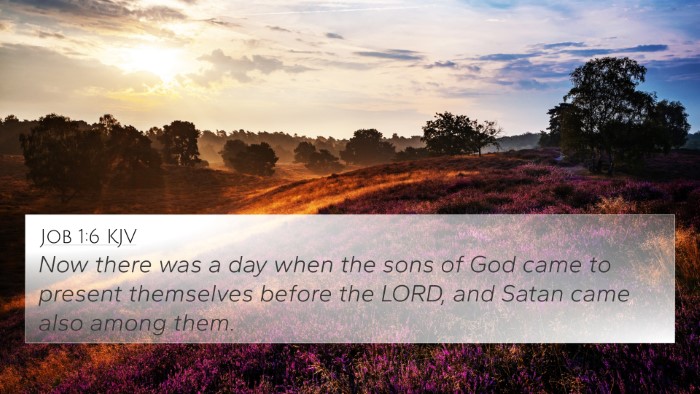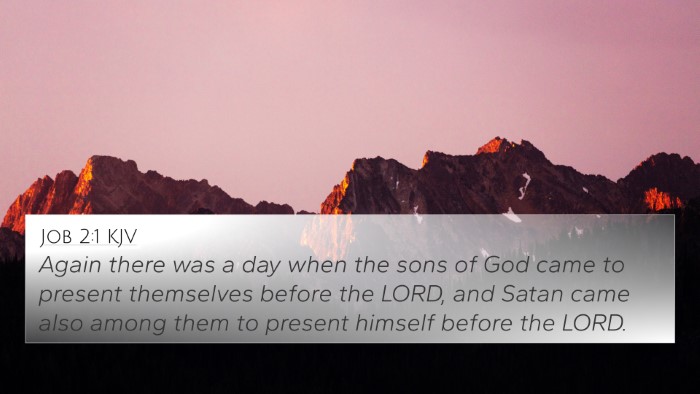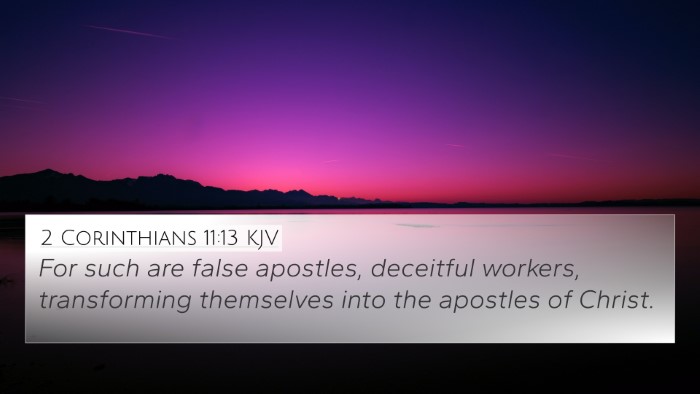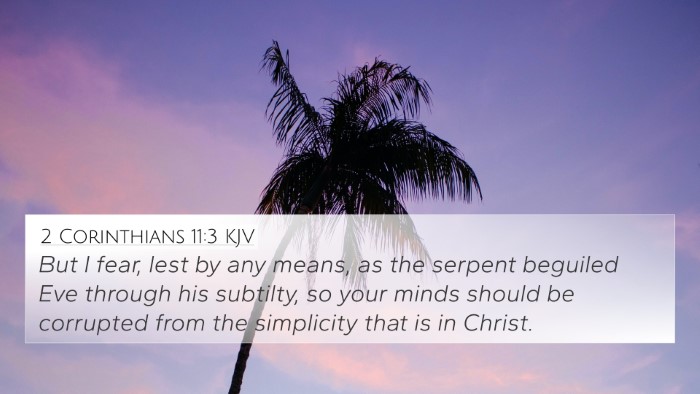Understanding 2 Chronicles 18:20
2 Chronicles 18:20 states:
"Then there came out a spirit, and stood before the Lord, and said, I will entice him. And the Lord said unto him, Wherewith? And he said, I will go out, and be a lying spirit in the mouth of all his prophets." (KJV)
Context of 2 Chronicles 18:20
This verse occurs within a narrative about King Ahab of Israel seeking to go to war against Syria, relying on his prophets for direction. It uniquely illustrates the workings of divine providence and the spiritual realm.
Commentary Insights
The following insights drawn from prominent public domain commentaries help illuminate the meaning of this verse:
- Matthew Henry: Henry emphasizes the sovereignty of God in allowing a lying spirit to influence Ahab’s prophets. This highlights the conflict between truth and deception in spiritual counsel.
- Albert Barnes: Barnes suggests that this spirit’s role was to orchestrate Ahab's downfall by leading him into battle with false assurances, indicating the serious consequences of relying on untruths.
- Adam Clarke: Clarke relates this passage to themes of divine judgment where God uses even evil spirits to fulfill His purposes, showcasing the mysterious ways in which God operates in the affairs of humanity.
Theological Implications
This verse raises profound theological implications about the nature of God’s sovereignty, the existence of evil spirits, and the reality of deception in the spiritual realm:
- Divine Sovereignty: God is sovereign not only over good but also allows evil to fulfill His purposes.
- Nature of Prophecy: The distinction between true prophecies and false prophecies is made evident, with the latter often catering to the desires of the heart.
- Spiritual Warfare: The involvement of a lying spirit illustrates the hostilities in the spiritual realm that influence earthly decisions.
Cross-References
2 Chronicles 18:20 can be cross-referenced with the following biblical passages for deeper understanding:
- 1 Kings 22:22: A parallel account of the same event, emphasizing the lying spirit's role.
- Jeremiah 14:14: Discusses false prophets and their misleading influence.
- Ezekiel 14:9: Touches on God's judgment against false prophecy.
- 2 Thessalonians 2:11: Explains how God sends a strong delusion to those who reject the truth.
- Proverbs 12:19: Clarifies the enduring nature of truthful words versus deceit.
- Matthew 7:15: Warns against false prophets who come in sheep's clothing.
- Romans 1:24-25: Describes how God allows people to follow their own sinful desires.
Connections Between Bible Verses
The connections between this verse and others invite a theological exploration into the nature of God's governance over truth and falsehood.
Bible Verse Parallels
Examining parallels between Ahab’s story and similar instances in the Bible helps us to discern a pattern of divine involvement in human decisions:
- In Acts 5:3, Ananias and Sapphira lie to the Holy Spirit, highlighting the dire repercussions of deceit.
- Genesis 3:4-5 shows the serpent lying to Eve, leading to humanity’s fall.
Thematic Bible Verse Connections
This verse presents a theme of deceit and its consequences, echoing throughout the Scriptures. Understanding these themes can enhance one's ability to interpret related verses.
Identifying Connections between Old and New Testament
Several verses connect the themes found in 2 Chronicles 18:20 with New Testament teachings on truth and deception:
- John 8:44: Jesus refers to the devil as the father of lies.
- Colossians 2:8: Advises believers to not be taken captive by deceitful philosophy.
Bible Reference Resources
For those wishing to dive deeper into cross-referencing and thematic studies, various tools are available:
- Bible Concordance: A helpful index of words and themes in the Bible for easy reference.
- Cross-Reference Bible Study: Guides to assist in navigating through related scriptures.
- Comprehensive Bible Cross-Reference Materials: Resources designed for detailed study and understanding.
Conclusion
2 Chronicles 18:20 encourages us to consider the importance of discernment in spiritual matters. It also serves as a caution against the allure of falsehood and emphasizes the necessity for seeking God’s truth.
Further Study
To fully grasp the implications of this verse, readers are encouraged to engage in comparative Bible verse analysis and explore cross-referencing methods to enhance their understanding of biblical truths in relation to one another.






